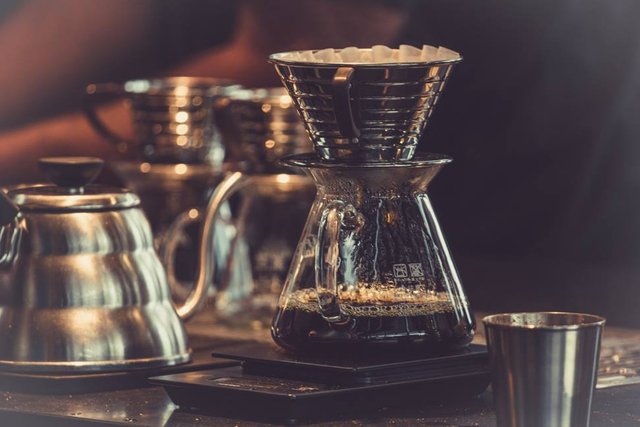How To Brew "The Perfect Cup of Coffee"

Brewing a perfect cup of coffee is key to the full enjoyment of a great brew. Buying the highest grade coffee is only the start and can count for nothing if the brewing is not done properly. It's easy to wreck otherwise excellent coffee with terrible brewing. We realise you might want to hear it's as simple as pushing a button, but, all we can say is: it ain't.
The grower, and roasters do their bit, and now you have to do yours. If either messes up, great coffee just isn't possible. The first thing to understand is what's going on during the brewing process. The ground coffee is exposed to hot water in order to "extract" the flavour compounds, solids, and oils. What is extracted ends up in the water, creating the solution we call coffee. Perfect extraction would get everything that's desirable out of the coffee bean and into the cup, while leaving behind all that which is undesirable.
Coffee to Water Ratio
The best way to measure coffee is by weighing it. If you're serious about coffee, you should buy in a scale that can weigh small portions of coffee accurately to 0.1 of a gram. A good scale is indispensable when blending your own coffee in small amounts. You can measure coffee by volume, but by doing this you lose accuracy because of varying bean density and relying on visual guess work. The amount of ground coffee used in relation to the amount of water, constitutes the brew ratio.
After the coffee has brewed, the amount of solubles that have been extracted in relation to the amount of water, constitutes the drinking ratio. The brewing ratio usually determines the drinking ratio, but it doesn't have to. Hot water can be added to the infusion after brewing to reduce the concentration and flavour intensity, changing the drinking ratio.
Play around to brew to your own personal taste. It's always better to brew your coffee on the strong side and then "cut" it to taste with water. If the coffee is too weak, all you can do is start over.
Water
The water used must be right or the coffee will be awful. The solution that we drink is 96% water. The flavour of coffee can easily be ruined by not doing our due diligence. If the water you are going to use doesn't taste right, don't use it. It should have no taste, or "character", such as sharp or astringent qualities. Use bottled water if brewing at home, water from the tap isn't suitable enough for great coffee, unless you are using a good water filtration system.
Softened water should also be avoided. It won't extract as well as non-softened water. You shouldn't use distilled water either as all of the minerals that carry the coffee flavour have been removed. The minerals present in water are essential. Any container that you are storing your water in must be cleaned regularly and thoroughly as the bacteria that builds inside will negatively affect the flavour of our coffee. This is one of the areas that people tend to neglect when brewing coffee at home and even in some high-street coffee shops.
Water Temperature
The brewing temperature of the water used is a vital element to brewing the perfect cup. It should be between 195 F (91 C) and 205 F (96 C). You should never use water at boiling point. And again play around with the temperature of your water as it also has an impact on the flavour of your coffee.
The Brewing Process
The finer you grind your coffee, the more surface area of the coffee is exposed. A common misconception is that the finer we grind our coffee the stronger the coffee will be in our cup. This is where most people ruin what could have been a great cup of coffee. If the grind is too fine, and you expose the coffee to the water for too long, the result will be .
Over-extraction of the ground coffee will result in too many of the undesirable compounds, generally referred to as "bitters" being extracted. It is important to note that the brewing time must be controlled precisely. Not monitoring brew time is one of the key causes of varying results when making coffee.
By lowering extraction time, you won't dissolve enough of the essential compounds that were created when your coffee was roasted. Over-extraction of the brew will result in dissolving too many of the undesirable compounds. Your challenge is to get the grind size and the extraction time perfectly balanced.

Have You Found This Guide Useful?
Let Me Know Your Thoughts and Opinions in the Comments Section Below

